- Home
- Rick Riordan
Mission Road Page 3
Mission Road Read online
Page 3
Page 3
It wasn’t okay. Even I was sensitive enough to see that. But I also knew better than to press her.
I kissed her one last time. We said an uneasy good night.
Maia’s BMW pulled away down South Alamo. I fought an urge to follow her—an instinct almost as strong as when I’d grabbed my father’s gun and tailed Dr. Vale.
“Hey,” a passerby called to me. “Gotta restroom in there?”
He was an art gallery cowboy—grizzled ponytail and black denim, too much New Mexican jewelry. Judging from his slurred words, he was about three beers shy of a keg.
“I got a restroom,” I admitted. “Last visitor who used it, I just got back from his funeral. ”
The cowboy laughed.
I stared at him.
He muttered something about not needing to pee that bad and stumbled off down the street.
I glanced at my business sign, wondering how much longer it would be there if my license got revoked. The art patrons might have the last laugh. By the next First Friday, this place might be a gallery.
I headed up the sidewalk, feeling like I was still walking behind somebody’s coffin.
SAM BARRERA AND OUR HOUSEKEEPER, MRS. Loomis, were playing Hearts in the living room.
When I’d moved in last summer, I promised my accountant the whole first floor of the house would be used for business. The residential space would be confined to upstairs. Unfortunately, Sam and Mrs. Loomis did a lot more residing here than I did business.
Slowly but surely, my waiting room had reverted to living room. Mrs. Loomis’ crystal knickknacks multiplied like Jesus’ loaves. My carefully placed stack of Detective Industry Today got shoved aside for Sam’s medication tray. Framed photos of the Barrera family proliferated on the walls, with sticky note names and arrows next to all the faces so Sam could remember who was who. A crochet basket lived on my desk, right next to the skip-trace files.
All I needed now were lace doilies on the sofa and I’d be trapped in my grandmother’s house forever.
Sam and Mrs. Loomis had taken over the coffee table for their card game.
Sam wore pleated slacks, a dress shirt and a blue tie. His FBI standard-issue shoulder holster was fitted with a black plastic water gun.
The gun was a compromise.
I’d learned the hard way that when Sam got up in the morning, he wouldn’t rest until he found a firearm. I could take them away, lock them up, whatever. He would tear the house apart looking. If he didn’t find one, he would wander around irritated all day. He’d try to sneak out and drive to the gun shop.
Finally Mrs. Loomis suggested the water gun, which was a dead ringer for Sam’s old service pistol except for the bright orange plastic muzzle.
Sam was happy. Mrs. Loomis was happy. Sam could now shoot my cat as much as he wanted and Robert Johnson got nothing worse than a wet butt. Domestic harmony reigned.
“Who’s winning?” I asked.
“Special Agent Barrera,” Mrs. Loomis grumbled. “Five dollars and counting. ”
“Go easy on her, Sam,” I said.
Sam looked at me innocently. He stuffed a roll of quarters into his pants pocket. “Hell, Fred. I never play for cash. ”
My name isn’t Fred, but that never bothered Sam much.
In the last six months, he’d put on weight. He looked more robust and relaxed than he’d ever looked during his prime. Living at the Southtown office obviously agreed with him.
Of course, it should. He’d grown up in this house.
Through an odd series of circumstances, I’d become Sam’s caretaker and tenant when his memory started going. He didn’t want to give up the family home. He couldn’t maintain it by himself. I needed a cheap place to live and work.
Sam being a legendary former FBI agent and my biggest rival in the local PI market, I figured I was doing myself a favor by helping him retire. Every so often, I trotted him out to meet clients for “high-level consultations. ” Sam loved it. So did the clients, as long as I didn’t mention Sam’s mental condition.
“How was the funeral?” Mrs. Loomis asked.
“The sermon was short. ” I sank into an armchair. “Good appetizers. Closed casket. Nobody assaulted me. ”
She nodded approvingly.
Sam laid his cards on the table. “I win. ”
“Agent Barrera,” Mrs. Loomis chided. “I haven’t even bid yet. ”
“Can’t beat the master. ” Sam plucked another quarter from her change dish.
Mrs. Loomis sighed and reshuffled the cards.
She was by far the best assisted-living nurse we’d had. She got room and board, so she worked cheap. Being the widow of a cop, she was unfazed by the grittier aspects of my work. Sam and I provided her with company and a purpose. In return, she scolded Sam into taking his meds and kept him from interrogating the mailman at water-gun-point.
Out on South Alamo, Friday night traffic built to a dangerous hum. Somewhere, a glass bottle shattered against asphalt.
I needed to get up, change out of my funeral suit. But whenever I stopped moving, numbness set in. I started thinking about the . 38 caliber hole I’d put in Dr. Vale’s chest.
What bothered me most wasn’t my remorse. It was that my remorse seemed . . . intellectual. Detached.
I was stunned at how easy it had been to kill a man. I was horrified by the elation I’d felt afterward, when I realized the doctor’s shot had missed me.
I was alive. He was dead. Damn right.
Perhaps Maia Lee had seen the wildness in my eyes when she’d met me at the police station. Maybe that’s what was bothering her.
My finger curled, remembering the weight of the . 38 trigger.
Years ago, I’d asked a homicidal friend if stepping over the moral line got easier each time you killed a man.
He’d laughed. Only moral line is your own skin, vato.
That friend now had a wife and kid.
He’d stopped hanging around me because I was a bad influence.
In the kitchen, by the back door, Robert Johnson licked a tuna can. A moth with smoking wings fluttered around the lightbulb.
“Tres?” Mrs. Loomis asked. “Would you like to play?”
When I tried to speak, I realized I’d been clenching my jaw.
“Thanks,” I said. “But I should—”
Bang.
The back door rattled.
Robert Johnson evaporated from the doormat, abandoning his tuna can.
“Not again,” Mrs. Loomis muttered.
We were used to unwelcome visitors on the weekends—stray partiers looking for art, free food and beer, not necessarily in that order. Most came to the front door, but some wandered in from the backyard.
“I’ll deal with ’em,” Sam said, going for his water gun.
Then a familiar face appeared at the kitchen window—the friend I’d just been thinking about.
“Keep playing,” I told Sam. “I’ll take care of it. ”
I walked into the kitchen, closing the living room door behind me. I went to the back door and let in Ralph Arguello.
“Vato . . . ” His voice faltered.
He had blood on his hands. There were speckles of it on his forearms, a large red explosion drying on the belly of his white guayabera.
I don’t remember exactly what I said. Something intelligent like “Oh, shit. ”
Ralph pushed past me, collapsed in a chair. He dropped a gun on the breakfast table. His regular . 357. At least, it used to be his regular . 357 until he got married and swore never to use it again.
Mrs. Loomis called, “Tres? Are you all right?”
Ralph locked eyes with me. His expression was a few volts shy of a stripped power line.
“I’m fine,” I called. “Just an old friend. ”
“Zapata set me up,” Ralph croaked. “Two of them. I got one in the gut. The other—”
“Slow down,” I said. “Any of t
hat blood yours?”
“No. No, I don’t think so. ”
I drew the shades. I ripped a roll of paper towels off the dispenser and soaked them in hot water.
“Shit, Ralph. Johnny Shoes? What were you thinking?”
“Had to talk to him . . . Supposed to be a goddamn talk. ”
“We’ll call Ana. ”
“No!” He snatched a steaming wad of paper towels from me and pressed his face into them. “It was self-defense, vato. But Ana can’t . . . she can’t see me like this. You gotta let me rest here—just for a little while. ”
Several reasons to say hell, no occurred to me.
If Ralph had acted in self-defense, he needed to come clean with the police immediately. He would already be in deep crap for leaving the scene. Besides, I was in enough trouble with the SAPD.
Still, something in his voice made me hesitate.
The kitchen door creaked open. Sam stuck his head in.
He didn’t look surprised to see a blood-splattered man sitting at our kitchen table.
“Who shot this agent?” he asked.
Ralph and I exchanged looks.
“It was an ambush,” I told Sam. “Our CI gave us bad information. ”
“I hate when that happens,” Sam said. “You need an ambulance, son?”
“I’m okay,” said Ralph, a little shaky, but catching on fast. “Thanks, Mr. Barrera. ”
“Special Agent Barrera,” Sam corrected.
“Sorry, sir. ”
“Sam,” I said, “we don’t want to upset Mrs. Loomis, seeing an agent in this condition. You think you could convince her to take you to the store for some Metamucil or something?”
Sam nodded grimly. “I’m on the case. ”
I WRAPPED RALPH’S BLOOD-SOAKED SHIRT and . 357 in a plastic garbage bag and stuffed them behind the loose plywood wall in the laundry room. I told myself I could retrieve them as soon as Ralph calmed down enough to call the police.
I reparked his Lincoln Continental so it wasn’t blocking the entire alley. I didn’t realize there was blood on the steering wheel until it was all over my hands. Feeling nauseous, I washed off with the backyard hose.
I thought about Ralph appearing at my door—the first time I’d seen him in five months. I should’ve resented him showing up like this, after he’d become a family man and let our friendship waste away. I should’ve been angry that he was bringing me so much trouble.
But the truth was I was too dazed to be angry. Not because he’d shot somebody. He’d killed men before. But I’d known Ralph Arguello since high school, and I couldn’t recall any time when he’d looked so shaken, or come to me for help. It was always the other way around.
I also understood why Ralph didn’t want his wife, Ana DeLeon, to know anything. Their marriage two years ago had caused a huge scandal in the SAPD, especially since she’d just become the first woman ever to make sergeant in homicide. Officially, there had been no problem with Ana marrying Ralph. He had no criminal record. Unofficially, everybody knew he deserved one.
For years, Ralph had monopolized the pawnshop business in town. It was common knowledge that he moved stolen goods. He wasn’t above violence to protect and expand his territory. In fact, the main reason Johnny Zapata hated Ralph was that Ralph wouldn’t sell his properties, which Zapata wanted to use to front his own smuggling operations. Zapata wasn’t used to having people tell him no, and Ralph had been telling him to go screw himself for years.

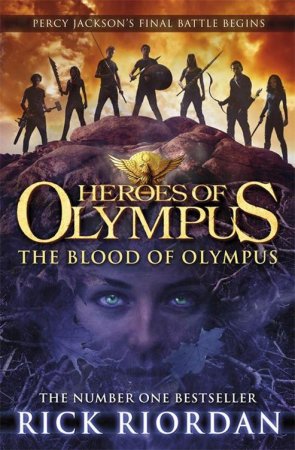 The Blood of Olympus
The Blood of Olympus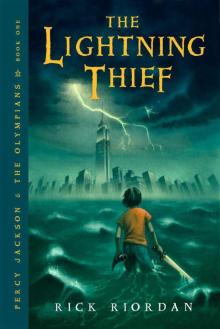 The Lightning Thief
The Lightning Thief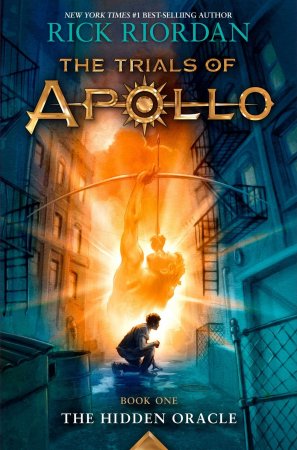 The Hidden Oracle
The Hidden Oracle The Dark Prophecy
The Dark Prophecy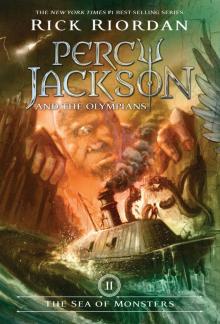 The Sea of Monsters
The Sea of Monsters The Sword of Summer
The Sword of Summer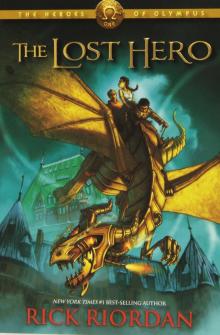 The Lost Hero
The Lost Hero The Ship of the Dead
The Ship of the Dead The Burning Maze
The Burning Maze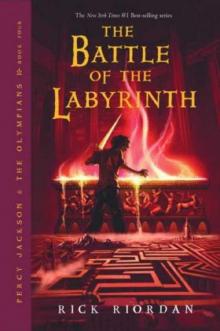 The Battle of the Labyrinth
The Battle of the Labyrinth The Hammer of Thor
The Hammer of Thor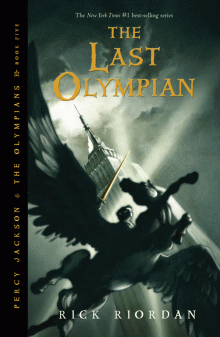 The Last Olympian
The Last Olympian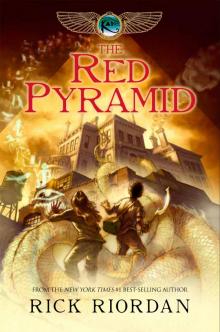 The Red Pyramid
The Red Pyramid The Maze of Bones
The Maze of Bones The Son of Sobek
The Son of Sobek The Titans Curse
The Titans Curse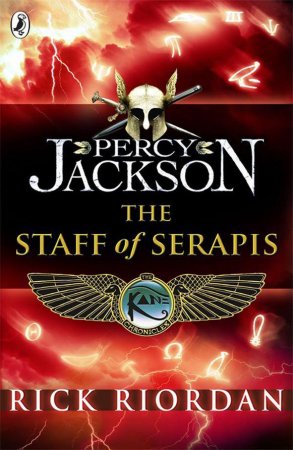 The Staff of Serapis
The Staff of Serapis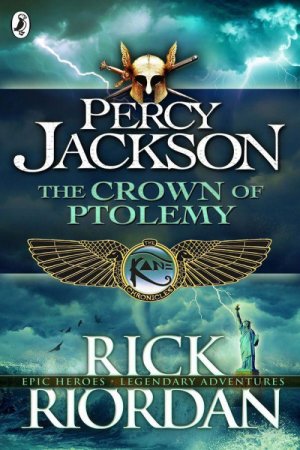 The Crown of Ptolemy
The Crown of Ptolemy Big Red Tequila
Big Red Tequila Percy Jackson: The Complete Series
Percy Jackson: The Complete Series Vespers Rising
Vespers Rising The Lightning Thief: The Graphic Novel
The Lightning Thief: The Graphic Novel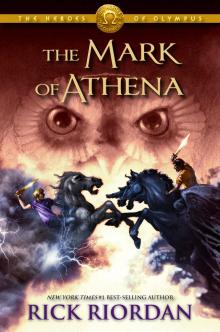 The Mark of Athena
The Mark of Athena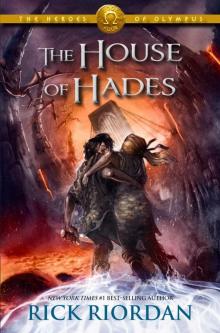 The House of Hades
The House of Hades The Son of Neptune
The Son of Neptune The Demigod Diaries
The Demigod Diaries The Serpents Shadow
The Serpents Shadow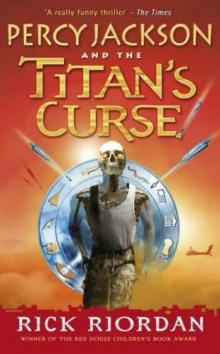 The Titan's Curse pjato-3
The Titan's Curse pjato-3 The Demigods of Olympus: An Interactive Adventure
The Demigods of Olympus: An Interactive Adventure The Tyrant's Tomb
The Tyrant's Tomb The Demigod Files
The Demigod Files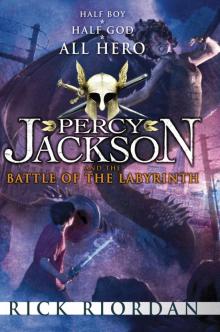 Percy Jackson and the Battle of the Labyrinth
Percy Jackson and the Battle of the Labyrinth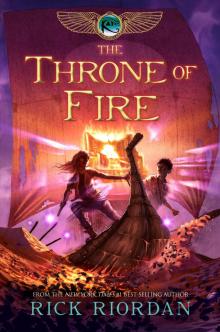 The Throne of Fire
The Throne of Fire The Serpent's Shadow (The Kane Chronicles, Book Three)
The Serpent's Shadow (The Kane Chronicles, Book Three) Mission Road
Mission Road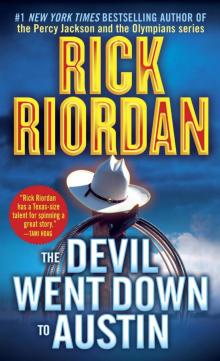 The Devil Went Down to Austin
The Devil Went Down to Austin The Tower of Nero
The Tower of Nero The Heroes of Olympus: The Complete Series
The Heroes of Olympus: The Complete Series Rebel Island
Rebel Island The Trials of Apollo Camp Jupiter Classified: A Probatio's Journal
The Trials of Apollo Camp Jupiter Classified: A Probatio's Journal Percy Jackson's Greek Gods
Percy Jackson's Greek Gods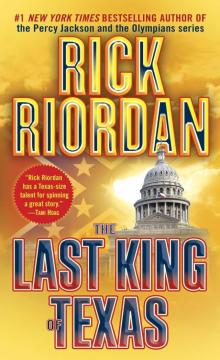 The Last King of Texas
The Last King of Texas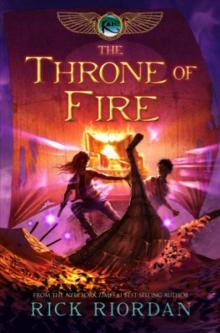 The Throne of Fire kc-2
The Throne of Fire kc-2 Magnus Chase and the Sword of Summer
Magnus Chase and the Sword of Summer Maze of Bones - 39 Clues 01
Maze of Bones - 39 Clues 01 Magnus Chase and the Gods of Asgard, Book 2: The Hammer of Thor
Magnus Chase and the Gods of Asgard, Book 2: The Hammer of Thor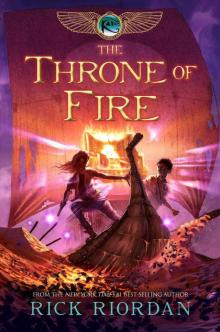 Kane 2 - The Throne of Fire
Kane 2 - The Throne of Fire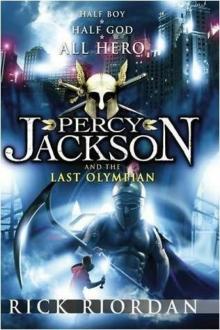 The Last Olympian pjato-5
The Last Olympian pjato-5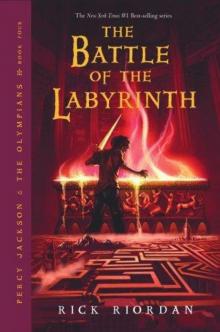 The Battle of the Labyrinth pjato-4
The Battle of the Labyrinth pjato-4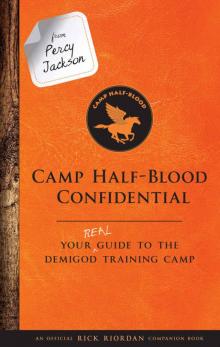 From Percy Jackson: Camp Half-Blood Confidential: Your Real Guide to the Demigod Training Camp (Trials of Apollo)
From Percy Jackson: Camp Half-Blood Confidential: Your Real Guide to the Demigod Training Camp (Trials of Apollo)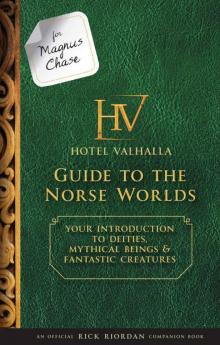 For Magnus Chase: Hotel Valhalla Guide to the Norse Worlds: Your Introduction to Deities, Mythical Beings, & Fantastic Creatures
For Magnus Chase: Hotel Valhalla Guide to the Norse Worlds: Your Introduction to Deities, Mythical Beings, & Fantastic Creatures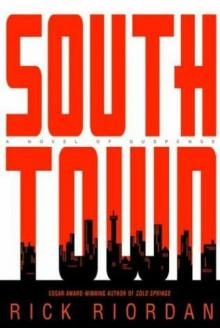 Southtown tn-5
Southtown tn-5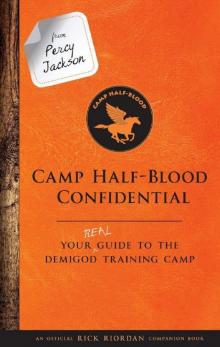 From Percy Jackson_Camp Half-Blood Confidential
From Percy Jackson_Camp Half-Blood Confidential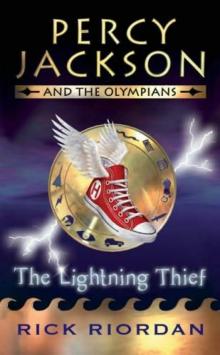 The Lightning Thief pjatob-1
The Lightning Thief pjatob-1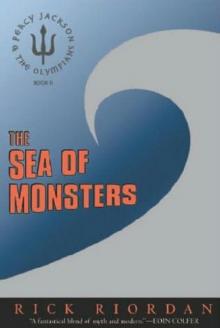 The Sea of Monsters pjatob-2
The Sea of Monsters pjatob-2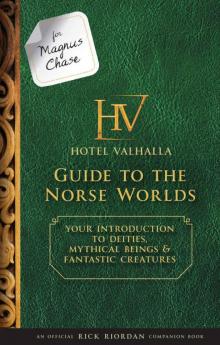 For Magnus Chase_Hotel Valhalla Guide to the Norse Worlds
For Magnus Chase_Hotel Valhalla Guide to the Norse Worlds Percy Jackson and the Bronze Dragon
Percy Jackson and the Bronze Dragon Percy Jackson: The Complete Series (Books 1, 2, 3, 4, 5)
Percy Jackson: The Complete Series (Books 1, 2, 3, 4, 5) The Mark of Athena (The Heroes of Olympus, Book Three)
The Mark of Athena (The Heroes of Olympus, Book Three) The Heroes of Olympus: The Demigod Diaries
The Heroes of Olympus: The Demigod Diaries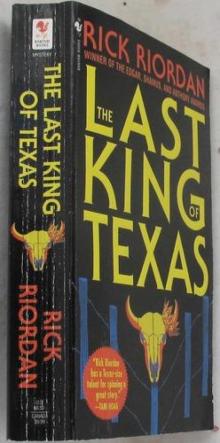 The Last King of Texas - Rick Riordan
The Last King of Texas - Rick Riordan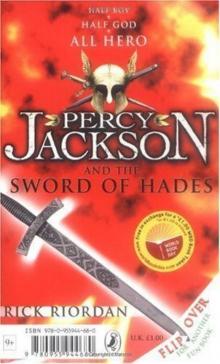 Percy Jackson and the Sword of Hades
Percy Jackson and the Sword of Hades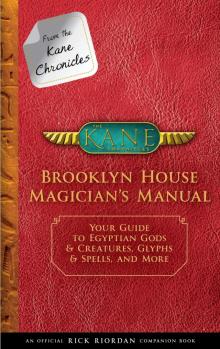 Brooklyn House Magician's Manual
Brooklyn House Magician's Manual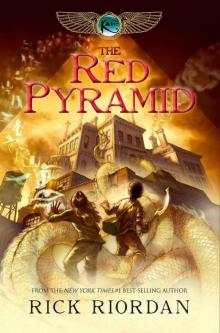 The Kane Chronicles, Book One: The Red Pyramid
The Kane Chronicles, Book One: The Red Pyramid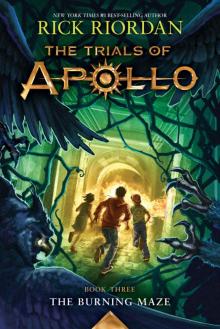 The Trials of Apollo, Book Three: The Burning Maze
The Trials of Apollo, Book Three: The Burning Maze The Demigods of Olympus
The Demigods of Olympus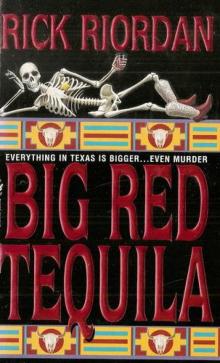 Big Red Tiquila - Rick Riordan
Big Red Tiquila - Rick Riordan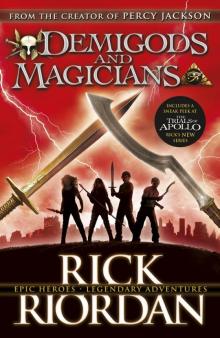 Demigods and Magicians
Demigods and Magicians Percy Jackson and The Stolen Chariot
Percy Jackson and The Stolen Chariot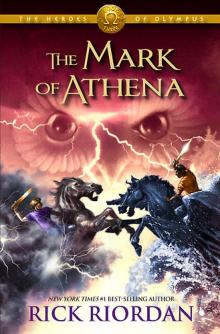 The Mark of Athena hoo-3
The Mark of Athena hoo-3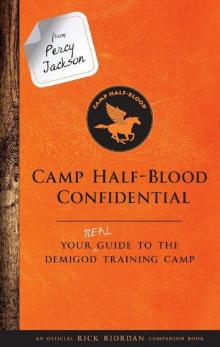 From Percy Jackson: Camp Half-Blood Confidential: Your Real Guide to the Demigod Training Camp
From Percy Jackson: Camp Half-Blood Confidential: Your Real Guide to the Demigod Training Camp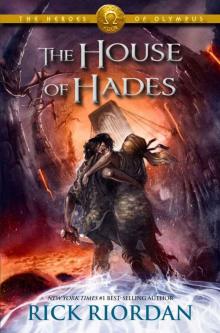 The House of Hades hoo-4
The House of Hades hoo-4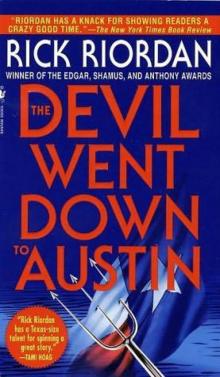 The Devil went down to Austin tn-4
The Devil went down to Austin tn-4 9 from the Nine Worlds (Magnus Chase and the Gods of Asgard)
9 from the Nine Worlds (Magnus Chase and the Gods of Asgard)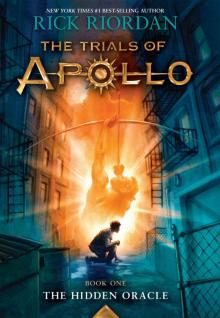 The Trials of Apollo, Book One: The Hidden Oracle
The Trials of Apollo, Book One: The Hidden Oracle The Serpent's Shadow kc-3
The Serpent's Shadow kc-3 The Son of Neptune hoo-2
The Son of Neptune hoo-2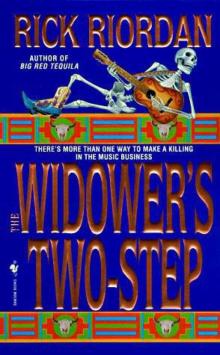 The widower’s two step tn-2
The widower’s two step tn-2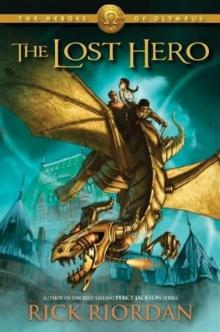 The Lost Hero hoo-1
The Lost Hero hoo-1